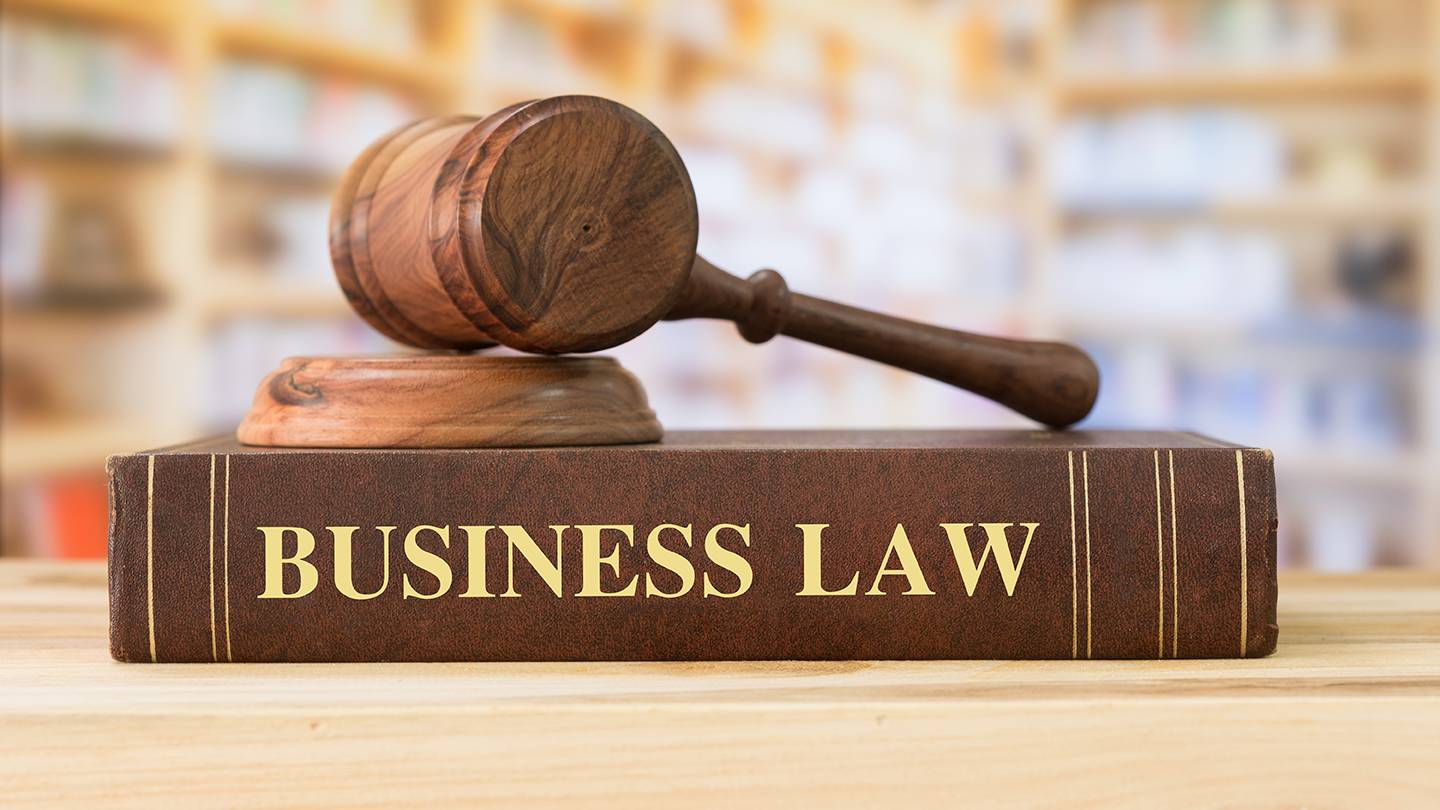Self-Study
Essentials of Business Law
Critical guide to Legal Risk Management in Business Operations. Explore essential legal principles affecting business, from intellectual property to corporate governance, to better protect your organization.

$375.00 – $415.00
Webcasts are available for viewing Monday – Saturday, 8am – 8pm ET.
Without FlexCast, you must start with enough time to finish. (1 Hr/Credit)
Please fill out the form below and we will reach out as soon as possible.
CPE Credits
15 Credits: Business Law
Course Level
Overview
Format
Self-Study
Course Description
A key aspect of risk reduction is to understand how the legal system impacts the operations of a business. In the Essentials of Business Law course, we cover a broad range of legal topics that can have an adverse impact on a business. Topics covered include intellectual property, sales contracts, negotiable instruments, agency relationships, corporate governance, government regulations, and much more. After taking this online risk management CPE course, one should have a much better understanding of which legal issues are most applicable to the specific circumstances of one’s business.
Learning Objectives
Upon successful completion of this course, participants will be able to:
- State the ordering of the sources of law.
- Specify the meaning of full faith and credit.
- Describe the different types of dispute settlement systems.
- Specify how the concept of strict liability works.
- Specify the characteristics of intellectual property.
- Identify the statutes governing the protection of trade secrets.
- Recall the process for obtaining a patent.
- Specify the different types of crimes.
- Describe the different types of fraud crimes.
- Specify the elements of a valid contract.
- Specify when an offer has been accepted.
- Recall the requirements to prove that there was fraud in a contract.
- Recall the rules pertaining to mistakes in contracts.
- Specify when a contract is considered to be unconscionable.
- Identify the rules pertaining to the evidence of terms relating to a contract.
- Recall the rules pertaining to the assignment of contractual rights.
- Recall the criteria for when a sales contract has been formed.
- Specify the conditions under which a seller can demand the return of goods.
- Identify the criteria for when a buyer is assumed to have accepted goods.
- Recall the rules relating to express and implied warranties.
- Specify the types of warranties that a merchant provides to its buyers.
- Identify the types of delays associated with the availability of cash from a check.
- Recall the characteristics of a special indorsement.
- Specify the warranties related to negotiable instruments.
- Identify the defenses against the payment of a negotiable instrument.
- Recall how a mechanic’s lien works.
- Specify how a surety arrangement works.
- Identify the circumstances under which a lender can seize the property of a borrower.
- Recall the conditions for creating a security interest in a borrower’s personal property.
- Specify the priority of claims in a credit arrangement.
- Identify the tasks imposed on a creditors’ committee in bankruptcy proceedings.
- Recall the criteria for initiating an involuntary bankruptcy.
- Specify the priorities for fund payouts in a bankruptcy.
- Identify the criteria for an individual to qualify for a Chapter 7 bankruptcy filing.
- State the duties of a principal and agent.
- Recall when an agency agreement can be terminated.
- Specify when a principal can be held liable for the actions of an agent.
- Identify when an agent can be held liable for a contract.
- Recall the provisions of the various statutes governing labor law.
- Specify the goal of an affirmative action program.
- Identify the purpose of the federal agencies involved in labor law issues.
- Recall the reasons why someone would want to join a labor union.
- Specify how a union certification process can be shortened.
- Identify how an unfair labor practice claim can be filed.
- Recall the advantages and disadvantages of the various business types.
- Specify what a limited partner is allowed to do in a limited partnership.
- Identify the purpose of a buy-and-sell arrangement.
- Recall the purpose of an indenture agreement.
- Specify the criteria for the filing of a short-swing profit lawsuit.
- Identify the reasons for the existence of blue sky laws.
- Recall when the exemptions to the securities laws can and cannot be used to raise money.
- Specify the thresholds required for a Hart-Scott-Rodino filing.
- Identify how the failing company doctrine works.
- Recall the different types of franchising arrangements.
- Specify the requirements for blocking a proposed merger due to anticompetitive effects.
- Identify the different types of real property ownership arrangements.
Course Specifics
SS1024366147
October 17, 2024
There are no prerequisites.
None
266
Compliance Information
CMA Notice: Western CPE makes every attempt to maintain our CMA CPE library, to ensure a course meets your continuing education requirements please visit Insitute of Management Accountants (IMA)
CFP Notice: Not all courses that qualify for CFP® credit are registered by Western CPE. If a course does not have a CFP registration number in the compliance section, the continuing education will need to be individually reported with the CFP Board. For more information on the reporting process, required documentation, processing fee, etc., contact the CFP Board. CFP Professionals must take each course in it’s entirety, the CFP Board DOES NOT accept partial credits for courses.
Meet The Experts

Steven M. Bragg, CPA, is a full-time book and course author who has written more than 300 business books and courses. He provides Western CPE with self-study courses in the areas of accounting and finance, with an emphasis on the practical application of accounting standards and management techniques. A sampling of his courses include the The New Controller Guidebook, The GAAP Guidebook, Accountants’ Guidebook, and Closing the Books: An Accountant’s Guide. He also manages the Accounting Best Practices podcast. Steven has been the CFO or controller of both public and private companies and has been a consulting manager with Ernst & Young and …
Related Courses
-
 Business Law
Business Law
Identity Theft and Protection
Delta CPE LLC QAS Self-Study
Credits: 4 $116.00
QAS Self-Study
Credits: 4 $116.00$116.00 – $136.00
-
 Business Law
Business Law
Business Law – The Legal Environments of Business
Delta CPE LLC QAS Self-Study
Credits: 12 $336.00
QAS Self-Study
Credits: 12 $336.00$336.00 – $376.00
-
 Business Law
Business Law
Sexual Harassment Awareness
Delta CPE LLC QAS Self-Study
Credits: 1 $29.00
QAS Self-Study
Credits: 1 $29.00$29.00 – $49.00
